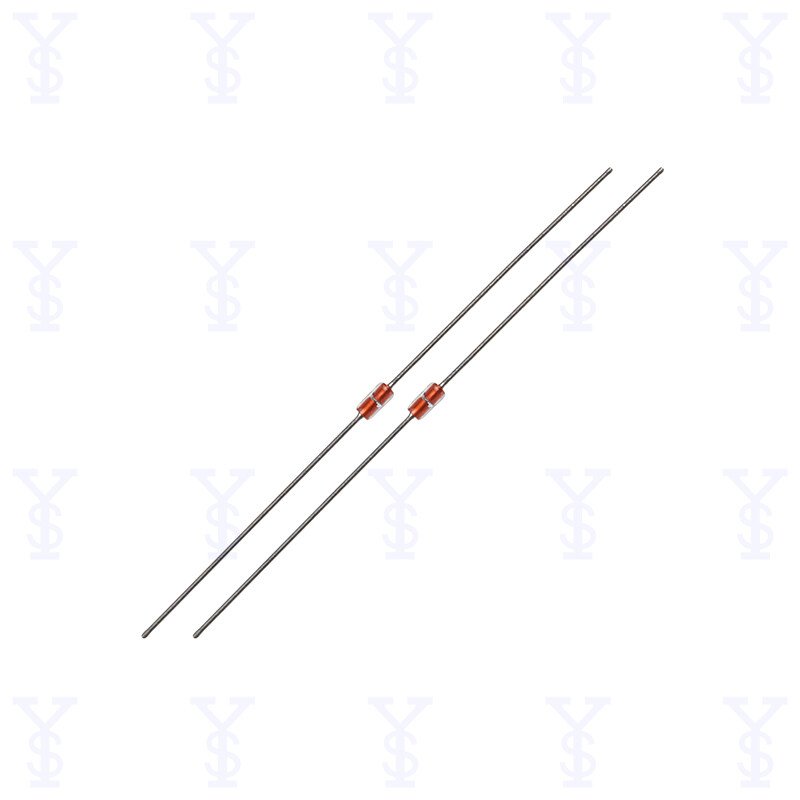Error de format de correu electrònic
emailCannotEmpty
emailDoesExist
pwdLetterLimtTip
inconsistentPwd
pwdLetterLimtTip
inconsistentPwd


Buy NTC Thermistor: What to Know Before You Purchase
When it comes to temperature sensing in a wide range of applications, NTC thermistors have long been a go-to solution. If you're considering buying NTC thermistors, you’re likely looking for reliable and accurate temperature measurement at a reasonable price. In this blog, we’ll walk you through everything you need to know before you buy NTC thermistors, from how they work to what you should look for in a quality product.
What is an NTC Thermistor?
An NTC (Negative Temperature Coefficient) thermistor is a type of resistor that decreases in resistance as the temperature increases. These thermistors are widely used in many industries because they provide fast and precise temperature readings over a specific range. They are commonly used in applications like HVAC systems, medical devices, automotive electronics, and household appliances.
Whether you’re looking to buy NTC thermistors for industrial purposes or home projects, understanding the basics of these components is essential. The next sections will dive into the details you need to know before making a purchase.
Key Benefits of NTC Thermistors
Before diving into the buying process, it’s important to understand why NTC thermistors are so widely used in temperature sensing applications. Here are some of the main benefits they offer:
● Precision: NTC thermistors provide high accuracy in temperature readings, especially in a specified temperature range.
● Fast Response: Because they change resistance quickly with temperature changes, they offer fast response times, making them ideal for real-time temperature monitoring.
● Cost-Effective: Compared to other temperature sensors, NTC thermistors are relatively inexpensive, making them suitable for a wide range of applications without exceeding budget constraints.
● Small Size: NTC thermistors come in small packages, making them perfect for compact electronic designs.
If you want a reliable and affordable temperature sensor, buying NTC thermistors is an excellent option. Let’s go deeper into what you need to know when purchasing.
Understanding NTC Thermistor Working Principle
Before you buy an NTC thermistor, it helps to have a basic understanding of how they work. The working principle of an NTC thermistor is fairly straightforward. As the temperature increases, the resistance of the thermistor decreases. This relationship between temperature and resistance allows the thermistor to act as an accurate sensor. These changes can be measured and used to regulate or monitor temperature-sensitive applications.
The thermistor's high sensitivity to temperature changes makes it suitable for various practical applications, including automotive temperature sensors, climate control systems, and even medical equipment.
Key Considerations When You Buy NTC Thermistors
Buying the right NTC thermistor involves more than just selecting the first product you find online. Here are some critical factors you should consider before making a purchase:
1. Temperature Range
One of the first things to check is the thermistor’s temperature range. NTC thermistors are designed to operate within specific temperature ranges, and not all are suitable for extreme conditions. Make sure that the thermistor you buy matches the temperature range required for your application.
2. Tolerance and Accuracy
Tolerance indicates how much the resistance can vary from the nominal value at a given temperature. Low tolerance NTC thermistors provide more accurate temperature readings. For example, an NTC thermistor with a tolerance of ±1% will offer more precise readings than one with a tolerance of ±5%. Consider your application's needs when evaluating tolerance and accuracy.
3. Response Time
The response time of an NTC thermistor is the time it takes to detect a change in temperature. Applications that require real-time monitoring should use thermistors with fast response times. It’s crucial to choose a thermistor that can quickly adjust to temperature fluctuations in your specific environment.
4. Size and Package Type
Thermistors come in various sizes and package types. For compact or portable electronic devices, you may need a smaller thermistor. On the other hand, larger systems may benefit from larger thermistors, which can sometimes handle higher power loads.
5. Cost
While NTC thermistors are generally affordable, prices can vary depending on the tolerance, accuracy, and package type. When you’re about to buy NTC thermistors, keep in mind that it’s worth investing a little more in a high-quality component that will last longer and perform better.
Top Applications for NTC Thermistors
If you’re planning to buy NTC thermistors, it helps to know where they are commonly used. Their versatility makes them a popular choice in various fields. Here are some industries and applications where NTC thermistors excel:
1. Automotive
NTC thermistors are often used in automotive applications, such as monitoring engine temperatures, HVAC systems, and battery management in electric vehicles. Their reliability under fluctuating conditions makes them ideal for automotive sensors.
2. Medical Devices
In the healthcare sector, NTC thermistors are employed in devices like incubators, dialysis machines, and digital thermometers. Their precision ensures accurate readings, which are critical for patient care.
3. Consumer Electronics
From home appliances like air conditioners to computers and smartphones, NTC thermistors help manage heat, prevent overheating, and improve energy efficiency. As electronic devices become more complex and compact, the demand for these thermistors is on the rise.
4. Industrial Controls
Industrial environments often require precise temperature monitoring for process control. NTC thermistors play a vital role in systems like refrigeration, heating, and environmental control, providing accurate real-time data.
How to Find a Reliable Supplier for NTC Thermistors
Once you've decided to buy NTC thermistors, it's time to find a reputable supplier. Choosing the right supplier ensures you receive high-quality products that meet your specifications. Here are some tips for finding a trusted supplier:
1. Look for Industry Certifications
Reliable suppliers often hold industry-standard certifications, which show their commitment to quality and safety. Make sure the supplier you choose has the necessary certifications, such as ISO 9001, to ensure product consistency.
2. Check Customer Reviews and Testimonials
Before buying, check for customer reviews or testimonials. Reputable suppliers will have a track record of satisfied customers, and positive reviews are a good indicator of quality service and products.
3. Consider Lead Time and Availability
When buying NTC thermistors, especially for large-scale or time-sensitive projects, lead time is essential. Choose a supplier with the capacity to deliver on time and maintain consistent product availability.
4. Evaluate Pricing and Bulk Purchase Options
Pricing can vary widely, especially if you’re buying in bulk. Some suppliers offer discounts for large orders, so it’s worth inquiring about bulk pricing if you need NTC thermistors for extensive use.
Conclusion
When you're ready to buy NTC thermistors, knowing the key factors and applications can help guide your decision. These sensors provide reliable, fast, and accurate temperature readings across a broad range of industries. From automotive and medical devices to consumer electronics, NTC thermistors are an invaluable component for maintaining temperature control.
By considering factors such as tolerance, temperature range, and supplier reliability, you can confidently choose the best NTC thermistor for your needs. Whether you're purchasing for a one-time project or buying in bulk for large-scale operations, understanding the core features of NTC thermistors will ensure a successful investment.
Ready to buy NTC thermistors? Make sure you select a reputable supplier, and don’t forget to consider all the key specifications discussed above. With the right NTC thermistor, your application will benefit from precise and efficient temperature monitoring for years to come.

